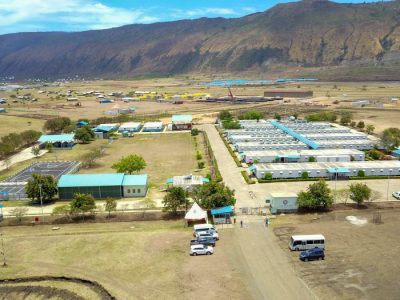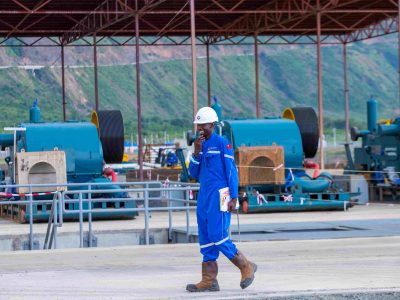
Uganda’s oil project estimated to cost up to $ 15 billion in building the requisite infrastructure for hydrocarbon production enters decisive stage as the oil companies begin to award tenders for the major construction works. It is expected that the successful bidders will shortly begin setting up operational bases in Uganda including mobilizing machinery and manpower.
Individual contractors and rotators drawing from various jurisdictions in the world are prevalently used in the oil and gas industry. Given the fast paced nature of sector activities, it is usually the case that compliance lags behind. As businesses begin to think about recruiting and deploying international workforce especially the rotators that will be indispensable in the execution of project works, we highlight some of the key Ugandan compliance issues to give consideration ahead of time.
Rotators in Oil
A significant portion of technical manpower in Uganda’s oil and gas industry especially at construction stage will be rotators. Rotators are employees who work in remote offshore locations on a fixed rotational work schedule. Rotators are internationally drawn and are critical to the operational success of oil field service companies.
The working schedule of rotators is characterized by an equal number of days on work and off for rest. Rotators can be on a 28/28 days schedule or otherwise as determined by their employer.
This means that they are at their remote work place site for 28 days and also take off an equal number of days to rest. Rotators normally return to their home countries in this period of rest but they continue to draw a salary during this duration.
Rotators in the oil and gas are highly trained and skilled individuals. When deployed into a country, they usher in skills and expertise that may not readily be available thus diversifying the local talent pool in the medium to long term. With the impending commencement of Uganda oil project works, several rotators will be deployed.
Uganda’s Employment Relationship
Rotators would be physically present in Uganda during the duration of their shift. As such, this would be employment exercised in Uganda which is regulated under the provisions of the Employment Act 2006.
Therefore, if any disputes arise between these rotators and their employers, Courts in Uganda would enforce their accruing employment rights in the same manner as would be applicable to Ugandan nationals.
Further, clauses in the employment contract are unenforceable at law in Uganda to the extent they limit or exclude the application of the Employment Act 2006 to the detriment of the employee. This notwithstanding, foreign workers can apply to the Minister responsible for labour matters to exclude part or whole of the Act as long as he or she can prove that they have a special arrangement which affords protection that is equivalent to or even better than that provided in Uganda’s law.
Compliance With Local Content Laws
Uganda’s oil legislation imposes local content requirements that oil companies and their contractors must comply with. Rotators largely fall in the category of technical workers.
Local content regulations prescribe that at least 40 per cent of the technical staff at the start of petroleum activities must be Ugandan citizens increasing to at least 60 per cent within five years after the start of the petroleum activities and 90 per cent within ten years from the start of petroleum activities. Whether these targets are realistic is another matter but contractors should be cognizant of this requirement unless there is special waiver from the Petroleum Authority of Uganda (PAU).
Right of Entry & Work
There are punitive sanctions imposed on oil companies and their contractors for using foreign workers who have not been cleared to work in Uganda. It is illegal for a foreigner to enter, stay and work in Uganda unless that person has a valid work and residence permit or pass. Prior to obtaining work permits from the Immigration Department, the PAU must give its approval premised on satisfaction that there are no locally qualified and skilled personnel to undertake the assignments in question.
Tax Consequences
From practice, tax compliance poses the biggest challenge in relation to the employment of rotators. Many contractors incur avoidable sanctions because they do not proactively address the underlying tax issues.
The tax consequences for rotators in Uganda principally depend on whether they are resident or non-resident persons. Resident persons are taxed on their world-wide income while non- residents are taxed only on income sourced in Uganda. A resident individual is one who has a permanent home in Uganda or is present in Uganda for 183 days or more in a 12 month period that begins or ends during the year of income or is present for periods averaging more than 122 days per year for the last 3 years
Non-resident individuals do not benefit from the exempt income threshold that is available to resident persons in as far as Pay As You Earn (PAYE) is concerned. Foreign source income earned by a short term resident is however exempt from taxation in Uganda. A short term resident is a resident individual other than a Ugandan Citizen present in Uganda for a period or periods not exceeding two years.
Rotators earn various allowances plus entitlement to several benefits some of which are actually paid or utilized in their home countries. It is important to seek professional advice on the Ugandan tax classification of these payments and benefits.
To ensure that the rotators are not in a worse or better off position than they would be if they had been working in their home countries as a result of the varying tax rates, rotators are usually tax equalized and sometimes subjected to a hypo tax by their employer. The gross up computation of the taxable income of the rotators cognizant of tax equalization should be carefully handled to eliminate errors that may crystallize future penalties and charges.
Social Security
Managing social security compliance for rotators is another common challenge. The body in charge of social security in Uganda is the National Social Security Fund (NSSF).
Employers with 5 or more employees are mandated to register with NSSF. The standard contribution to be remitted by an employer to NSSF on behalf of an employee is 15% of the employee’s wages.
The employer is legally allowed to deduct 5% from the employee’s wages and pay the remaining 10%. However, the employer can choose to settle the entire cost. The rotators would ordinarily be entitled to all their social security contributions at the end of their contractual stay in Uganda.
It is noteworthy that foreign rotators can be exempted by the Managing Director of NSSF from making social security contributions. This can be achieved if the expatriate can prove that they are already making contributions to a similar social security scheme in another country.
Conclusion
As earlier mentioned, compliance often lags behind because of the fast paced nature of operations especially in the early years of the oil and gas project activities. Based on our practice and experience of serving oil companies and their contractors, it is often the case that they are usually in catch up mode and incur significant yet avoidable costs remedying their non-compliance. For more support and information on managing rotator compliance in Uganda’s oil and gas industry, please contact your usual Cristal advisor.
The writer is the Managing Partner at Cristal Advocates. Email: dkakembo@cristaladvocates.com









